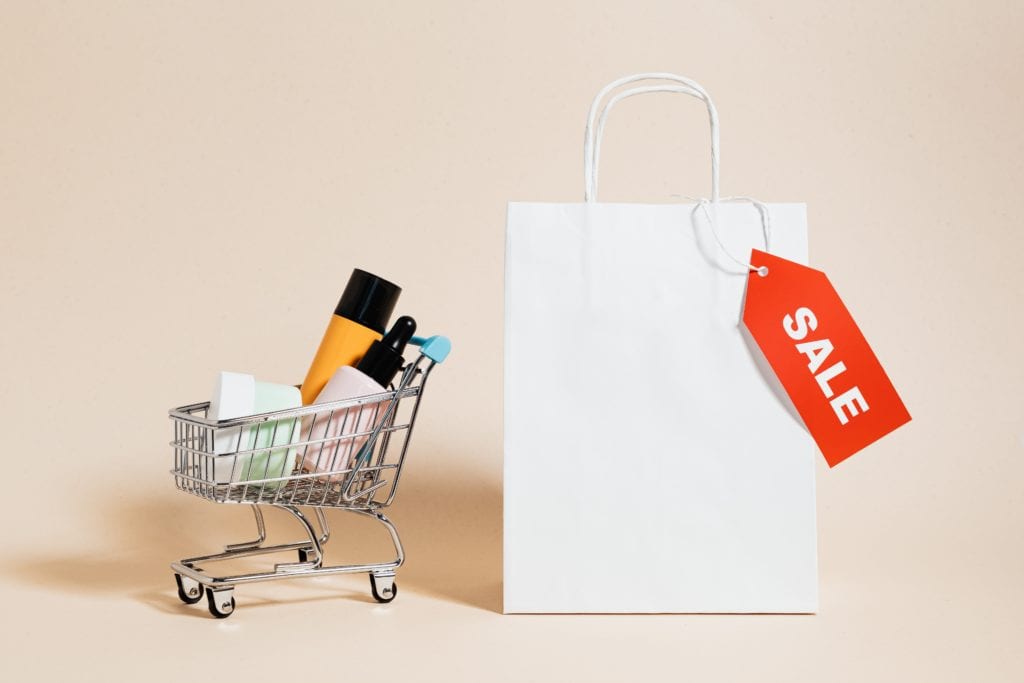2020 has been a big year for E-Commerce. The global pandemic shut brick-and-mortar retailers around the world in March and April. Some have never recovered. As a result, shopping habits have changed. Sixty-two percent of consumers shop online more now than before the pandemic. Although the impacts may vary by sector, it’s safe to say we’ve seen a long-term shift in the E-Commerce industry.
Which online retailers are enjoying the most success during the pandemic?
Warby Parker
Warby Parker is an optical E-Commerce and brick-and-mortar store that offers prescription glasses at low prices. Because eyewear doesn’t get people too excited, the company relied on quirky storytelling as its marketing technique. They’ve been able to build a loyal fan base by focusing on user experience.
This strategy continued in 2020 amidst the coronavirus pandemic. Warby Parker refocused their Buy a Pair Give a Pair program toward fighting the spread of the virus. The eyewear brand converted their New York Optical Lab into an N95 mask distribution center and launched a telehealth service for New York residents to renew their glasses or contact lens prescriptions. Plus, Warby Parker closed a $245 million funding round in August, bringing the company’s total estimated valuation to $3 billion. The optical E-Commerce giant has had a good year, despite COVID-19.
Leesa
Leesa is an E-Commerce brand that sells affordable, high-quality mattresses. The company has relied primarily on word-of-mouth marketing to attract attention and sales. Leesa was also recognized as a Top Impact Company of 2020 for its purpose-driven business model. For every 10 mattresses they sell, they donate one to a child in need. They also almost exclusively use recycled materials in their products.
Continuing their donation efforts during the pandemic made Leesa a standout E-Commerce business this year. The global bump in mattress sales due to stay-at-home orders lent to some of the company’s success as well.
Milk Makeup
Cosmetics sales dropped in 2020, with more people wearing face masks, staying home, or shifting their spending to more “essential” items than makeup. This dip did not stop Milk Makeup from becoming a 2020 Breakthrough Brand. The company was recognized for challenging norms and standards in the beauty industry by championing cosmetics as accessible to all. Their products are also vegan, cruelty-free, and paraben-free, making them a hit among socially conscious Millennial and Gen Z consumers.
In 2020, Milk Makeup celebrated becoming a top 10 brand at Sephora and establishing an international presence in Canada, the UK, Spain, Norway, and the Middle East. CEO Tim Coolican attributes Milk Makeup’s growth to a steadfast commitment to their values – creativity and self-expression – and the nurturing of their online community.
Modcloth
Online fashion is another sector that took a hit in 2020. In 2019, it was the largest segment of the B2C E-Commerce market and estimated at a size of $525.1 billion. In 2020, the fashion E-Commerce market declined because the COVID-19 pandemic disrupted supply chains. Despite this decrease, some online brands have managed to expand in 2020.
From its inception, Modcloth operated as a different kind of E-Commerce store. The founders, Susan Gregg Koger and Eric Koger wanted to weave a social experience into their online vintage clothing shop. Modcloth has been a big name in the online retail space for several years. The brand even had a deal with Walmart until 2019. A big reason 2020 was a good year for Modcloth is that the E-Commerce brand is returning to Europe. The company is hoping to bring the same shopping experience to European customers that it achieved with North American consumers.
Outschool
Online education exploded during the pandemic, as people started enrolling in courses to occupy their free time at home. One company that’s profited greatly from this boom is Outschool. The E-Commerce brand offers over 50,000 paid, unaccredited courses for students K-12. All the classes are live, too. Most other e-learning platforms use pre-recorded content. Outschool’s large course offering and real-time lessons have helped them corner the K-12 online education niche.
Outschool was growing steadily pre-COVID, but the pandemic made their numbers soar. The company raised $45 million in funding in September. CEO Amir Nathoo described Outschool’s success in 2020 as “overnight rocketship growth” in an interview with Forbes. The company’s ability to appeal to elementary and high school students stuck at home has contributed largely to their pandemic success.
HelloFresh
E-Commerce companies that sell subscription boxes have had a good year as well. People stuck at home are ordering more food, clothing, games, and other products to be delivered right to their door.
Meal delivery kits like HelloFresh had some of the biggest jumps in sales in 2020. HelloFresh operates in the US, Canada, Germany, the UK, the Netherlands, Belgium, Sweden, Luxembourg, Austria, Australia, and New Zealand. They saw a 100 percent year-over-year increase in the orders for the second quarter of 2020. CEO Dominik Richter thinks more people staying at home and cooking their own meals is the primary reason behind HelloFresh’s growth during 2020.
The coronavirus pandemic has been tough on many businesses and it may take years for the global economy to fully recover. One sector that’s done well and is projected to keep growing, however, is E-Commerce.
If you’re running a DTC or B2C E-Commerce business and would like to ship your products abroad, Border Buddy can create importing and exporting solutions specifically for your business. We’ll handle the logistics so you can focus on growing your online brand. Give us a call today to get started
